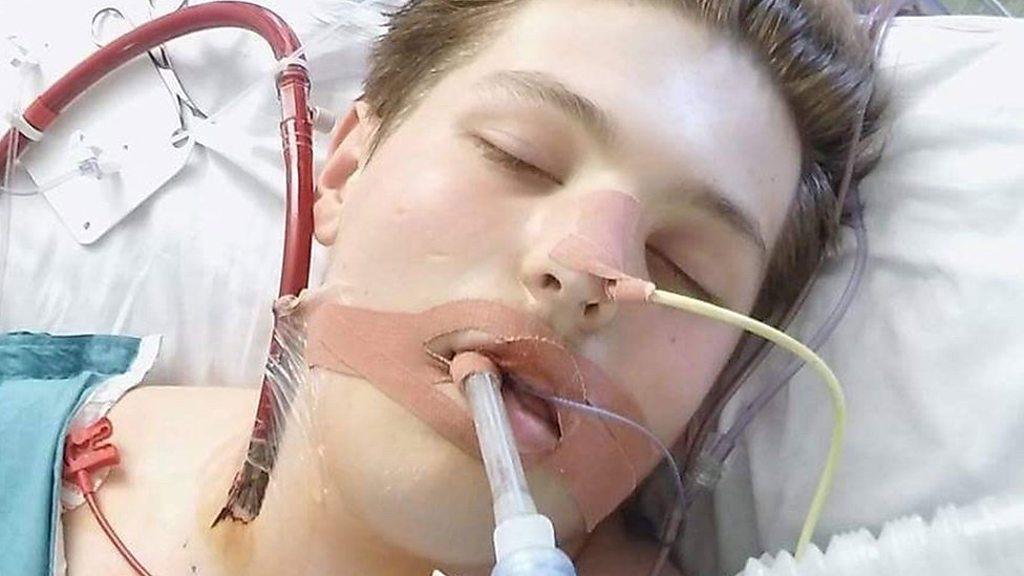Donald Trump reverses plans for flavoured e-cigarette ban
- Published
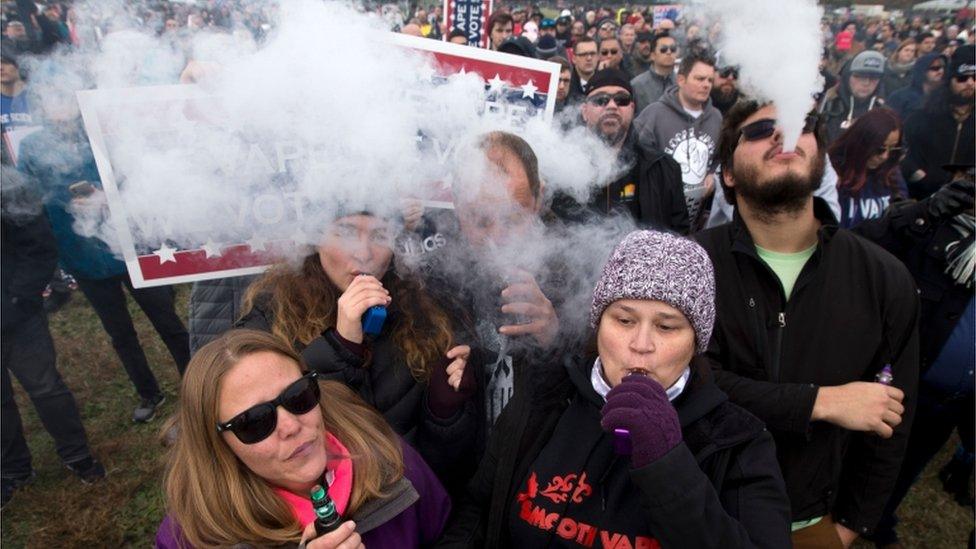
Pro-vaping groups and store owners rallied outside the White House this month in protest against a potential ban
President Donald Trump has reversed plans to ban flavoured e-cigarettes amid a national youth vaping crisis, US media report.
He announced plans for a ban in September, but reportedly decided not to enact it this month because of possible job losses and voter pushback.
Thousands of lung injuries have been attributed to vaping this year.
Mr Trump last week said he would meet industry and medical professionals to find "an acceptable solution".
"Children's health & safety, together with jobs, will be a focus!" he tweeted on 11 November.
Allow X content?
This article contains content provided by X. We ask for your permission before anything is loaded, as they may be using cookies and other technologies. You may want to read X’s cookie policy, external and privacy policy, external before accepting. To view this content choose ‘accept and continue’.

The concerns about jobs and voters were raised by advisers during a 4 November flight to a Kentucky campaign rally, the Washington Post newspaper reported on Sunday, external.
It quoted Trump campaign manager Brad Parscale as saying that a ban of flavoured e-cigarettes could hurt the president in key states in the 2020 election.
Mr Trump decided not to sign off on a "decision memo", fearing potential job losses and voter anger, the newspaper reported. The New York Times also reported that "allies working for the vaping industry" had warned him that such a move could cost him support.
First Lady Melania Trump and the president's eldest daughter, Ivanka, had advocated the ban.
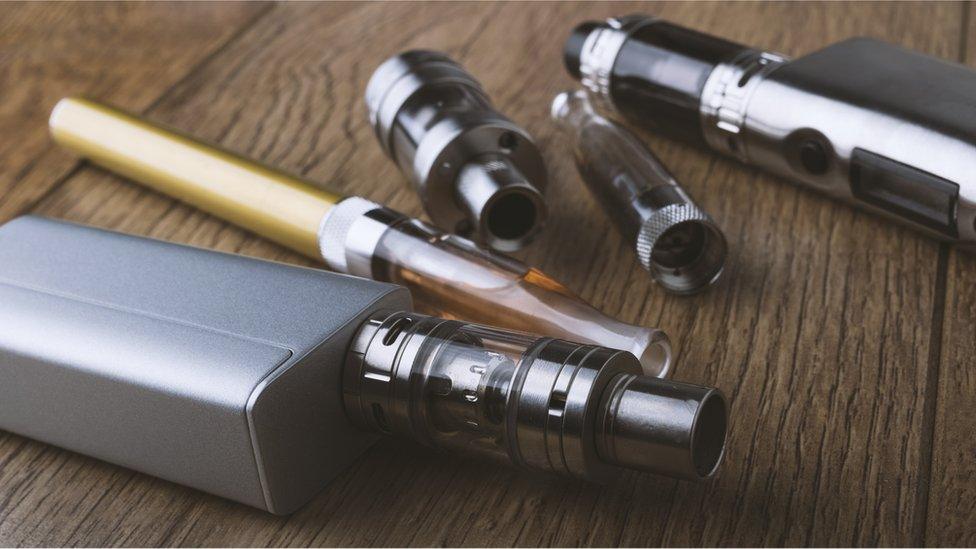
Vaping products come in many different forms - vape pens, e-cigarettes and more traditional vaporisers
E-cigarettes are battery-powered smoking devices filled with a liquid that contains nicotine, which is then heated into vapours that users inhale.
As of November, over 2,000 Americans have been affected by lung injuries attributed to vaping, according to the Centers for Disease Control (CDC), external.
More than half of those affected are between 13 and 24-years-old.
Forty-two deaths have been confirmed in 24 states and more are under investigation.
A senior official told the Washington Post that Mr Trump "didn't know much about the issue and was just doing it for Melania and Ivanka".
In September, Mr Trump told reporters his administration would implement strong rules to protect "innocent children", like his 13-year-old son Barron.
President Donald Trump: 'People are dying with vaping'
"We can't allow people to get sick and we can't have our youth be so affected," he said, adding that First Lady Melania Trump, who made a rare appearance during the policy announcement, felt "very, very strongly" about the issue.
"People are dying with vaping so we're looking at it very, very closely."
Health and Human Services Secretary Alex Azar said at the time a policy would be drafted within a few weeks.
E-cigarette manufacturers such as Juul have been accused of fuelling childhood addiction through flavoured products such as mango, cream or cinnamon roll.
Juul had stopped selling a number of flavours expecting a national ban, the New York Times reported.
But there have also been protests against a potential ban, and the #IVapeIVote campaign argued that a ban would put shops across the country out of business.
It could also force people to smoke cigarettes instead, vaping advocates say.
New York, Michigan, Washington and Rhode Island have passed bans on flavoured vaping products, though they have all faced legal challenges.
Other states and cities are considering similar legislation. Globally, over 40 million people use vapes or e-cigarettes.
Vaping fears: 'A new generation of nicotine addicts'
- Published11 September 2019
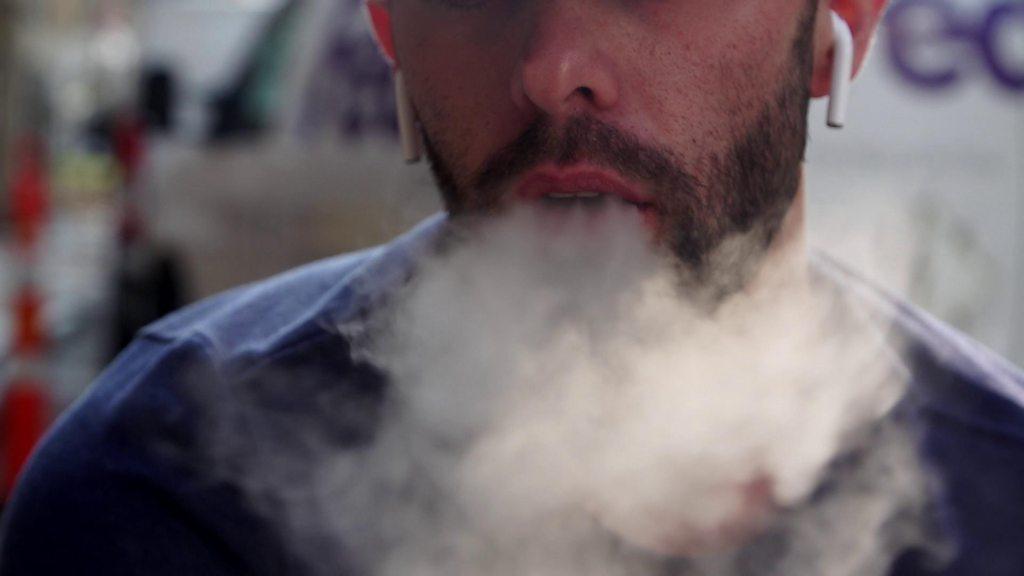
- Published11 September 2019
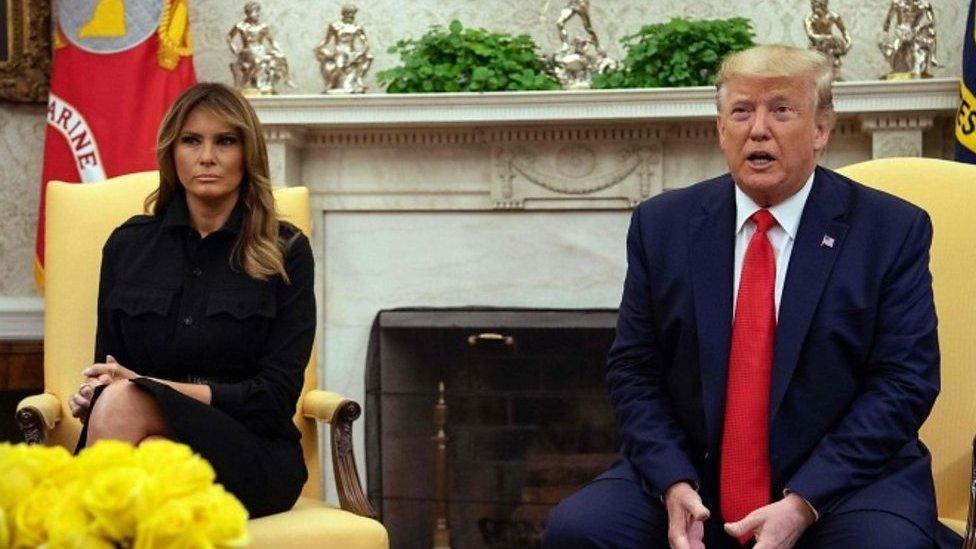
- Published12 November 2019
